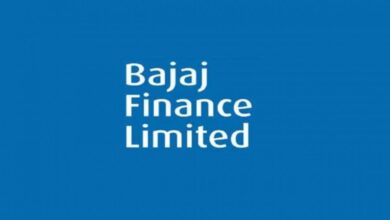How NRIs Can Use Fixed Deposits to Secure Overdraft Up to 90 % Without Premature Withdrawal?

Fixed deposits or FDs are one of the most popular investment products among Non-Resident Indians (NRIs) that guarantee a secure and steady return on their savings. However, there is limited knowledge among most NRIs that instead of drawing down their FDs prematurely, they can approach a loan against fixed deposit to avail liquidity. The facility offers NRIs the facility to obtain up to 90% overdraft on the FD principal, which avails quick funds to the investor while the investor continues to earn interest on the investment.
In this article, we are going to go in-depth into how NRIs can use this loan facility so they can benefit most from their financial planning. We will cover the concept of loan against fixed deposit, loan against FD interest rate which is commonly offered, eligibility, benefits, and points to consider. With that knowledge, NRIs can take short-term credit properly without disturbing their capital.
What is a loan against fixed deposit
A fixed deposit loan is an overdraft or a loan facility offered by a bank that lets you borrow money by pledging your fixed deposit. Instead of withdrawing your FD prematurely and losing the interest income, you’re given an overdraft or a loan based on a percentage of the FD value.
NRIs can avail this loan against their FCNR or NRE fixed deposits with Indian banks. The bank keeps a lien on the FD and exhausts the funds as soon as the loan is sanctioned. The term for the loan is usually the balance period of the FD, and the installments of interest may be made monthly or quarterly.
How NRIs benefit from loan against fixed deposit
Most of the NRIs hold their savings in fixed deposits due to the guaranteed return and security it offers. However, there are times when NRIs require short-term liquidity for purposes such as unexpected medical expenses, education fees, business needs, or house EMI. In such situations, FD closure leads to loss of interest and penalties in certain cases.
By taking a loan against fixed deposit, NRIs can avoid all this. The biggest benefits are:
- Facility of overdraft up to 90%: Banks provide loan up to 90% of the original value, offering large sums without reducing your equity.
- Continuous interest income: The FD continues to earn interest at the contracted rate for the duration of the loan.
- Low interest on loan: Loan against interest of FD is generally 1-2% more than the FD rate, a very cheap source of finance.
- Fast approval and disbursal: Minimum paperwork and instant sanction make it convenient.
- No effect on credit score: As the loan is collateralized against your FD, there is very little effect on your credit score.
- Flexibility in repayment options: Interest-only payment options or EMI schemes are generally offered.
Reading loan against FD interest rate for NRIs
The loan against FD rate is an important aspect that NRIs have to consider while planning their credit needs. The rate is typically set slightly higher than the rate of fixed deposit interest received on the pledged FD from banks.
For instance, if your fixed deposit in your FCNR is yielding an interest rate of 5.5% per annum, the interest rate on the loan against fixed deposit may be set as high as 7-8% per annum. This difference in rate is to compensate the bank for extending credit based on your fixed deposit as collateral.
Indian banks are in the habit of charging interest rates on such loans ranging from 1% to 3% over the rate of interest on the FD. There may be minor differences in interest rates and limit of overdraft among nationalised banks and private sector banks. Since NRIs keep FCNR deposits in foreign currency denomination, loan against FD interest rate could be fixed on a basis relating to the prevailing base rate or prime lending rate for foreign currency loans.
NRIs need to compare loan with FD interest rate of banks carefully before availing the facility. It also needs to be verified if other conditions like processing fee, prepayment, and loan term are re-examined.
Loan terms and conditions against fixed deposit
All Indian banks allow NRIs to avail loan against fixed deposit on specific conditions. Key eligibility criteria are:
- FD in the name of the NRI: The FD should be in the name of the NRI applicant.
- Minimum tenure for FD: The FD should have a minimum lock-in period, which is generally 3 months or more.
- FD amount: Almost all banks specify a minimum deposit, which is generally Rs. 50,000 or more.
- Type of account: Only NRE, NRO, or FCNR deposits qualify.
- Documentation: Original KYC documents such as passport, OCI card, proof of foreign address, PAN or Form 60/61 must be provided by the NRI.
- No negative history: The depositor does not possess any adverse banking record or defaults.
Once all these conditions are met, the bank will sanction the loan or overdraft against FD based on the deposit amount.
Process to avail loan against fixed deposit for NRIs
The procedure for procuring a loan against fixed deposit from Indian banks is normally straightforward:
- Application submission: The NRI submits a loan application form along with the fixed deposit receipt and KYC documents.
- Verification: The bank verifies the FD details, KYC, and sanctions rules.
- Lien mark on FD: Upon sanction, the bank places a lien on the fixed deposit, prohibiting early withdrawal.
- Release of the loan: The loan amount — typically up to 90% of the FD size — is deposited as overdraft facility or term loan to the NRI account.
- Re-payment of the loan and payment of interest: The interest on the loan is re-paid by the NRI monthly or quarterly, whereas the principal is repaid through the maturity value of the FD.
Depending on the bank, it can be done in a few hours to a maximum of 2-3 working days, thus it is a quick financing mode.
Important points to note for NRIs prior to taking loan against fixed deposit
Even though loan against fixed deposit is low-risk and low-cost borrowing, NRIs need to note some important points:
- Interest cost versus FD interest earned: Compare the rate of interest on loan with your interest rate on FD so that the net expense is reasonable.
- Synchronization of loan tenure: Ensure the loan tenure is not greater than the FD maturity duration. Prepayment or extension benefits may vary.
- Taxation: Interest earned on FD and loan interest may be taxed differently. Consult a taxation specialist.
- Exchange risk for FCNR deposits: Currency fluctuation may have an impact on repayment if borrowed in rupees as loan against secured FCNR deposits.
- Processing charges and fees: Prepayment fee or processing fees are levied by certain banks.
- No credit beyond lien mark extended: Loan amount only depends on FD value.
Popular banks offering loan against fixed deposit for NRIs
Major Indian major banks offer competitive interest rates and easy terms NRI loan against fixed deposit facilities. Some of the banks to watch out for are:
- State Bank of India (SBI): Provides loan up to 90% of FD value at rates 1.5% above the FD rate.
- HDFC Bank: Provides overdraft as well as term loans at reasonable rates from 7.5% and above.
- ICICI Bank: Quick approval and flexible repayment schedule with loan against FD based on FD interest rate on par with FD ROI.
- Axis Bank: NRI banking facilities with the overdraft facility against fixed deposit.
- Punjab National Bank (PNB): Offers loans against NRO and NRE FDs at competitive interest rates.
NRIs need to navigate the bank’s NRI loan policy and consider relationship advantages while selecting the lender.
Advantages of availing overdraft facility over term loan against FD
All banks offer the overdraft facility in lieu of the regular term loan against FD. Overdrafts have the following advantages:
- Flexibility: Withdraw according to need up to 90% of the original FD.
- Interest paid only on used amount: Unlike a fixed EMI, interest is paid only on the withdrawn amount.
- Convenience in renewal: The limit gets renewed with maturity of FD.
- Avoids drawdown of the whole loan: Offers improved management of cash flows.
For NRIs requiring money on a flexible basis without breaking the FD, overdraft against FD is an ideal facility.
A few tips on how to plan your finances through loan against fixed deposit successfully
NRIs can include loan against fixed deposit in their overall financial planning for optimal results:
- Maintain a sizeable portfolio of FD to generate sufficient collateral for overdraft.
- Use the loan facility for short-term or urgent working capital needs.
- Avoid pre-maturing of FDs to obtain interest on interest.
- Monitor loan vs. FD interest rate movements and re-finance with better rates.
- Keep a vigil over FD maturity dates to ensure easy repayment of loan.
The NRIs thus improve their liquidity without compromising on security for their original capital.
Conclusion
Loan against fixed deposit is a valuable financial solution for NRIs to unlock liquidity up to 90% without cashing their fixed deposits. This facility enables NRIs to earn interest on their deposits and still use money at reasonable loan against FD interest rate. With low documentation, quick processing, and easy repayment, it provides a convenient credit source in the event of requirement.
NRIs must analyze their FD portfolio and bank facilities with caution to avail this facility. Employing loan against fixed deposit ensures proper management of funds, thus preventing premature breaking of FDs and safeguard of long-term gains. It is a prudent financial move for NRIs to obtain hassle-free and low-cost loan against their fixed deposits.



